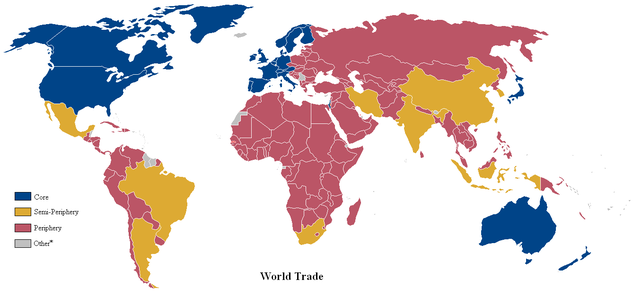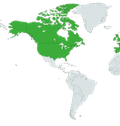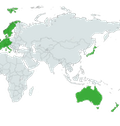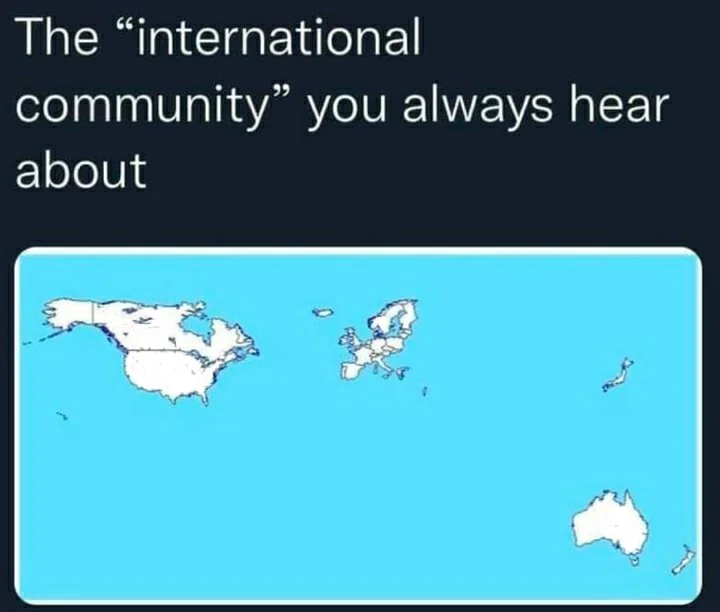the terms Imperial core and perifery countries are terms use in the World-systems theory which is an Internacional relations theory, based on the theory of imperialism of Lenin and other marxists works. It was develop by Immanuel Wallerstein
The Imperial Core in World-system theory, Its the nations that have higher levels of higher skill (like tecnology and education), Capital-intensive industries (like banking and services) compared to the Perifery that has mostly Labor-intensive industries (like the textile industry) and raw materials (like oil and lithium). The capital advantaje of the core lets it dominate the perifery, by having a Productivity dominace via developing high-value good at cheaper prices (like phones) and this leds to a Trade dominace thats gives the core a more favorable balance of trade with the perifery, and that leds to a financial dominace where more money enter the core than it leaves, aka accumulationof capital
the map of which is which looks like this mostly



